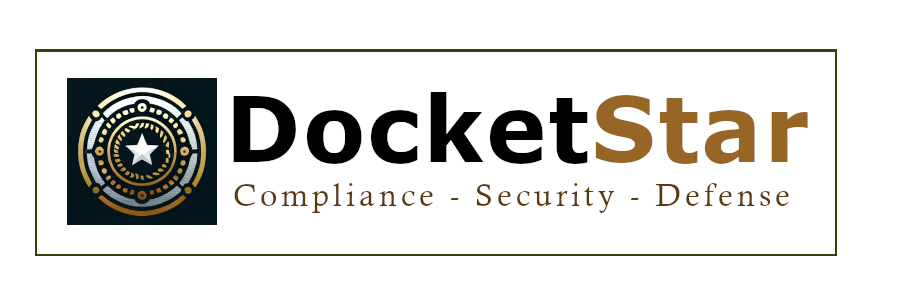Why does it matter ?
Accessibility, Security, Communication, Technology, and Legal Standards
In today's competitive and highly regulated business environment, maintaining compliance with essential standards is crucial for organizations. Compliance with Accessibility, Security, Communication, Technology, and Legal standards not only ensures adherence to laws and regulations but also brings numerous benefits, reduces risks, and enhances the overall excellence of an organization.
Accessibility Compliance
Ensuring that websites and digital platforms are accessible to all users, including those with disabilities, is both a legal requirement and a moral obligation. Compliance with Web Content Accessibility Guidelines (WCAG) 2.1 enhances the user experience for everyone, making content more usable and engaging. Accessible websites can reach a broader audience, including individuals with disabilities, thereby expanding market potential. Moreover, accessibility compliance fosters inclusivity and demonstrates the organization's commitment to social responsibility, improving public perception and customer loyalty.
Security Compliance
In an era of increasing cyber threats, security compliance is paramount. Adhering to standards such as ISO/IEC 27001 and PCI DSS ensures that organizations have robust security measures in place to protect sensitive data. Security compliance helps in mitigating risks associated with data breaches, financial losses, and reputational damage. Organizations that prioritize security not only safeguard their assets but also build trust with their customers and stakeholders. A secure environment is essential for maintaining business continuity and achieving long-term success.
Communication Compliance
Effective and compliant communication strategies are vital for maintaining transparency and trust. Ensuring that all communication, from privacy policies to marketing materials, comply with regulations such as the CAN-SPAM Act and GDPR, helps in building a trustworthy relationship with customers. Clear and transparent communication enhances user engagement and satisfaction, as customers feel informed and respected. Moreover, it helps in avoiding legal penalties and fines associated with non-compliance, thereby protecting the organization's reputation and financial health.
Technology Compliance
Keeping up with technological standards is crucial for the optimal performance and reliability of digital platforms. Compliance with web standards set by the World Wide Web Consortium (W3C) ensures that websites are functional, efficient, and accessible across various devices and browsers. Technological compliance enhances user experience, reduces downtime, and improves site performance. Organizations that leverage modern technologies and adhere to best practices stay ahead of the competition, demonstrating innovation and a commitment to excellence.
Legal Compliance
Adhering to legal standards and regulations is fundamental for any organization. Compliance with laws such as GDPR, CCPA, and COPPA protects the organization from legal repercussions, including hefty fines and lawsuits. Legal compliance ensures that the organization operates within the framework of the law, maintaining its credibility and trustworthiness. It also helps in safeguarding user data and privacy, which are critical in today's digital age. Organizations that prioritize legal compliance exude professionalism and reliability, making them more attractive to customers, partners, and investors.
Benefits and Risk Reduction
Compliance with these five elements brings numerous benefits, including enhanced user satisfaction, increased market reach, and improved operational efficiency. It reduces risks associated with legal penalties, data breaches, and reputational damage. By proactively addressing compliance requirements, organizations can avoid costly disruptions and focus on growth and innovation. Moreover, compliance fosters a culture of accountability and continuous improvement, driving excellence across all aspects of the organization.
Excellence in Compliance
Organizations that achieve excellence in compliance stand out in the marketplace. They are seen as leaders in their industry, committed to high standards and best practices. This excellence translates into tangible benefits, such as increased customer loyalty, higher conversion rates, and stronger brand reputation. Moreover, it attracts top talent, as professionals prefer to work for organizations that prioritize ethics, security, and innovation. Compliance excellence also opens doors to new business opportunities and partnerships, as other entities are more likely to collaborate with compliant and reputable organizations.
In conclusion, compliance with Accessibility, Security, Communication, Technology, and Legal standards is not just about meeting regulatory requirements; it is about building a strong foundation for sustainable success. Organizations that prioritize compliance demonstrate their commitment to excellence, protect their interests, and create a positive impact on their customers and society at large. At DocketStar, we believe that achieving and maintaining compliance is a continuous journey that drives innovation, trust, and excellence.
Web Compliance Technical Elements
-
Accessibility
- Accessibility: WCAG 2.1 guidelines for users with disabilities.
- Usability: User-friendly design, clear navigation, mobile-friendliness.
-
Security
- Data Protection: ISO/IEC 27001, PCI DSS.
- Cybersecurity: Regular security audits, SSL certificates, secure coding practices.
-
Communication
- Email Marketing: CAN-SPAM Act compliance for email newsletters.
- Advertising: FTC guidelines for truth in advertising, clear labeling of sponsored content.
- Content Accuracy: Fact-checking, regular updates, proper citation of sources.
- Copyright and Intellectual Property: DMCA, proper usage of licensed content.
-
Technology
- Web Standards: W3C standards, HTML, CSS, JavaScript best practices.
- Performance: Optimized load times, responsive design, cross-browser compatibility.
-
Legal
- Privacy Laws: GDPR, CCPA, COPPA, etc.
- Accessibility: ADA, WCAG 2.1.
- Consumer Protection: E-commerce laws, advertising regulations, consumer rights laws.
- Transparency: Clear terms of service, privacy policy, and cookie policy.
- Fair Practices: Non-discriminatory practices, ethical data collection, and usage.



